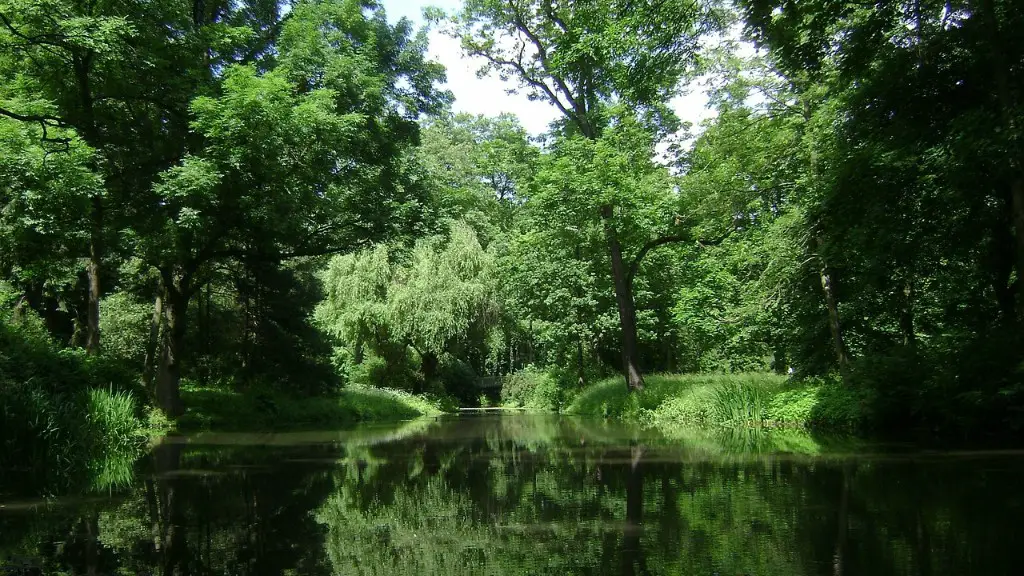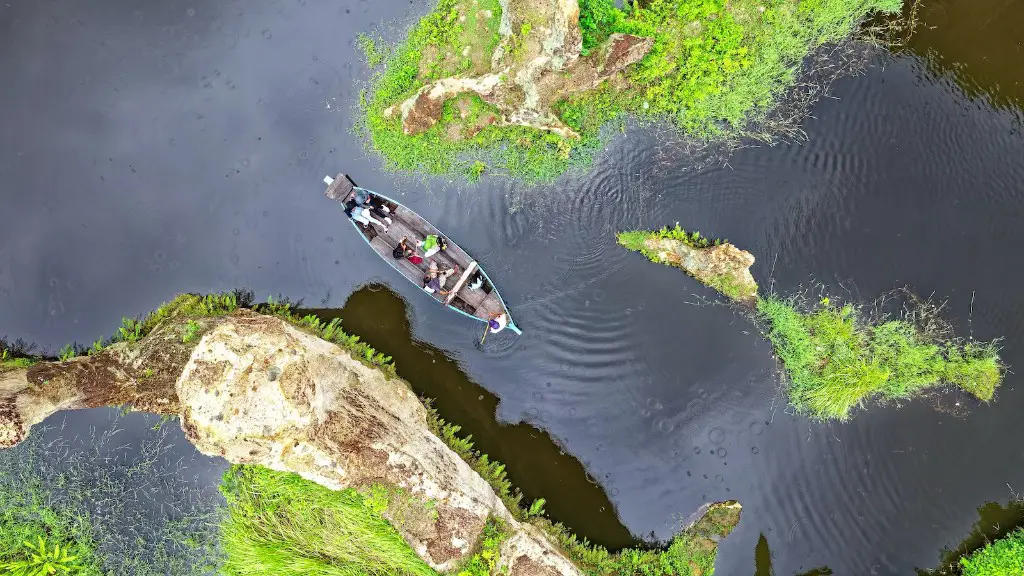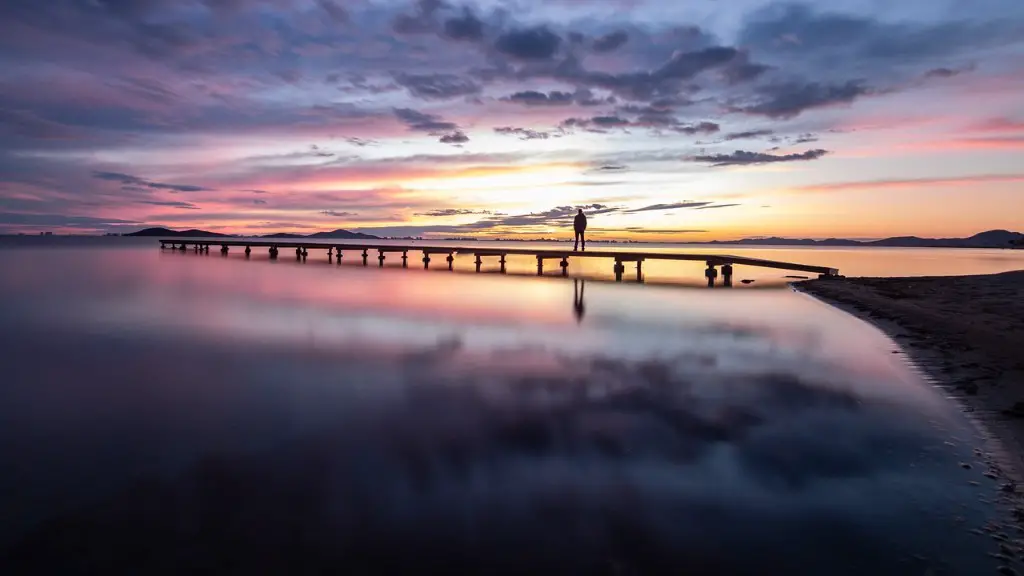Fish Types in Lake Malawi
Lake Malawi, which is located on the border of Malawi, Tanzania, and Mozambique, is shared by three African countries and is one of the richest bodies of fresh water in the world. It is home to more than 500 species of fish, making it the most species-rich lake in the world.
Lake Malawi is of particular interest to ichthyologists, due to the diversity of its fish species, which range from predatory mbuna to small and colorful haplochromines. Mbuna, which are the most well-known of the Lake Malawi fish, are found in the southern portion of the lake. These fish can be recognized by their large size and aggressive nature.
In addition to the mbuna, Lake Malawi is also home to numerous other species, including small, colorful cichlids, as well as larger species such as the colourful malawi cichlids that inhabit the lake’s shallow waters. The lake also houses many smaller species of fish, such as the dwarf danios, lamprologus, and killifish.
Other species of fish that occupy the lake include catfish, elephantfish, eels, gobies, and crabs. Lake Malawi also contains a number of lake-dwelling invertebrates, such as snails, shrimp, and clams that provide food for the fish inhabiting the lake.
Biologists who study the lake attribute the diversity of fish species in Lake Malawi to the lake’s geographic isolation. The lake is estimated to be about 2 million years old, and the fish living in the lake have been isolated from other bodies of water for this entire period of time. This has caused the fish to develop unique characteristics, which is one of the traits that has made Lake Malawi so popular among aquarium hobbyists.
Aquarium Hobbyists and Lake Malawi Fish
For many aquarium hobbyists, Lake Malawi fish have been a popular choice for many years. They are renowned for their vibrant colors and relatively peaceful disposition when kept in groups. The most common varieties of Lake Malawi fish include mbuna, haplochromines, and dwarf cichlids.
Mbuna are very popular, due to their bold colors, hardy nature, and relative ease of care. They prefer pH levels of 7.5-8.4 and a temperature range of 74-78°F (22-26°C). They are also fond of rock formations and can often be observed using them to hide and stake out territory.
Haplochromines, while not as popular as mbuna, are still colorful and relatively easy to keep. They are generally more peaceful than mbuna and prefer slightly lower pH and temperature levels.
Dwarf cichlids are relatively small, but still display a wide array of beautiful colors that make them attractive to many aquarists. They are also peaceful fish, and can often be observed interacting with each other in the aquarium.
Behavior and Care of Lake Malawi Fish
It is important to note that, while the fish in Lake Malawi are generally peaceful and community-oriented, they are also known for their territorial behavior. They are often quite confrontational when defending their territory and will be aggressive towards other fish if they feel threatened or provoked. Therefore, it is important to provide adequate space and structure for the fish to establish territories.
When kept properly, Lake Malawi fish are relatively easy to care for and can bring a vibrant, lively atmosphere to any aquarium. They should be kept in groups of at least six of the same species and should be provided with plenty of hiding places to facilitate their territorial nature. The aquarium should also be well-oxygenated and the water should be regularly tested to ensure that the pH and temperature levels are within the ranges specified for the particular species.
Environmental Issues In Lake Malawi
Despite being one of the most species-rich bodies of water in the world, Lake Malawi is currently facing a number of environmental issues that threaten its abundant fish populations. The lake is facing degradation due to pollution, deforestation, overfishing, and habitat destruction.
Overfishing is one of the most pressing issues facing lake populations. This is primarily due to poor fishing practices that have resulted in the over-exploitation of fish populations. Overfishing means that the fish populations are not being allowed to reach their full potential, leading to a decrease in the number and size of individual fish. In addition, it can lead to a decrease in the diversity of fish species as certain species become overharvested and others fill their niche.
Deforestation is another issue facing the lake. Trees provide essential shelter for fish and other animals, as well as habitats for microorganisms. The loss of trees around the lake increases the amount of sediment flowing into the lake, which can have a negative effect on the clarity of the water and the health of the aquatic life within it.
Conservation Efforts In Lake Malawi
Fortunately, there have been some efforts to protect and conserve Lake Malawi and its fish populations. Governments in the three countries around the lake have set up protected areas that limit the amount of fishing allowed in certain areas.
Other conservation efforts have focused on mitigating the effects of other environmental threats such as deforestation, pollution, and habitat destruction. For example, there have been efforts to replant trees around the lake to help improve water clarity and provide essential habitats for fish and other animals.
In addition, a number of NGOs and individuals have contributed to conservation efforts in the lake, from supporting research to launching educational programs and awareness campaigns.
Pros and Cons of Keeping Lake Malawi Fish
For those interested in keeping Lake Malawi fish, it is important to weigh the pros and cons of such a decision. On the one hand, Lake Malawi fish can be beautiful and vibrant, and can add a little bit of tropical flair to any aquarium. However, it is important to consider the environmental impacts of keeping these fish, as their population in the lake is decreasing due to overfishing, habitat destruction, and pollution.
While taking steps to ensure that these fish are kept in the right environment and with adequate care might have a positive impact, ultimately it’s important to consider the effects of your decision on the environment.
Sharing The Beauty Of Lake Malawi Fish With Aquarium Hobbyists
Aquarium hobbyists who keep Lake Malawi fish have the opportunity to share the beauty of these fish with others. By keeping these fish in an appropriate environment, hobbyists can ensure that these fish flourish and that their vibrant colors and personalities are experienced by others.
In addition, by taking the time to research and understand the needs of these fish, hobbyists can ensure that their tanks provide the best environment possible for their Lake Malawi fish. This will help to ensure that the fish are healthy and can reach their full potential.
Ethical Issues When Keeping Lake Malawi Fish
Aquarium hobbyists should also be aware of the ethical implications of keeping Lake Malawi fish in captivity. While the demand for these fish has increased, it is important to ensure that the fish being purchased are from reputable sources, such as responsible breeders or hobbyists, or that the fish were captured from the lake in a sustainable manner that does not harm the lake population.
When possible, hobbyists should also consider raising Lake Malawi fish in captivity, rather than purchasing wild-caught specimens. This will help to ensure that the fish remain in their natural environment and reduce the risk of introducing pathogens or invasive species into the lake.
Conclusion
The fish of Lake Malawi are some of the most diverse and colorful fish species in the world. However, they are also facing a number of environmental issues that threaten their populations. As aquarium hobbyists, it is important to be aware of the risks these fish face and to take steps to protect and preserve their populations.
By taking the time to research the needs of Lake Malawi fish and to ensure that they are provided with the best environment possible, hobbyists can help to ensure that the beauty of these fish can be enjoyed by many for years to come.


